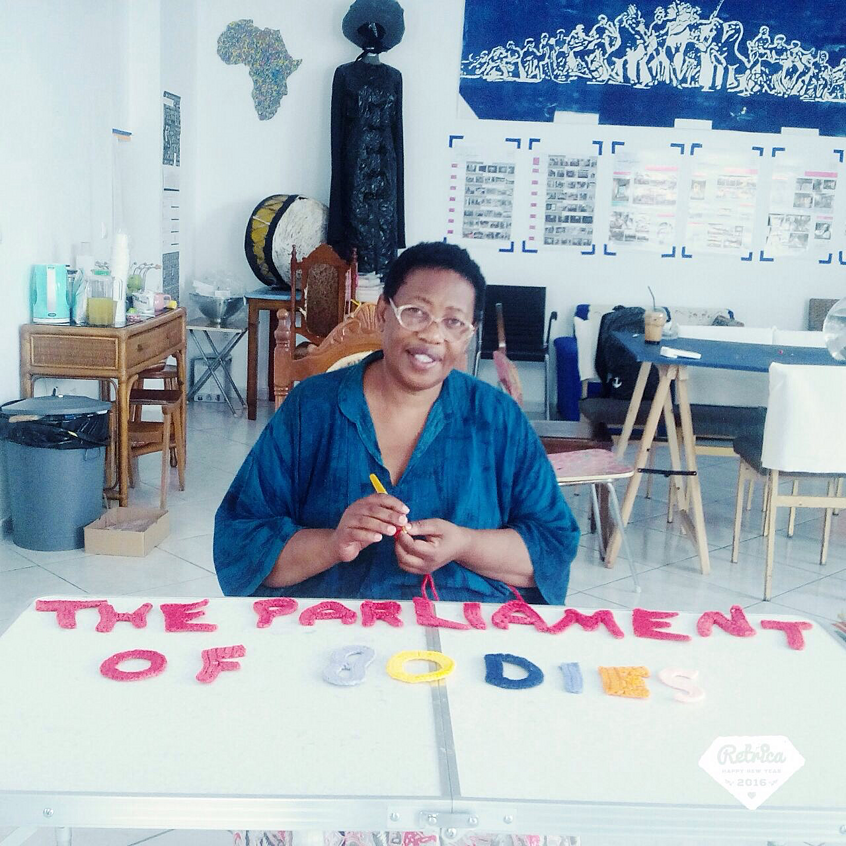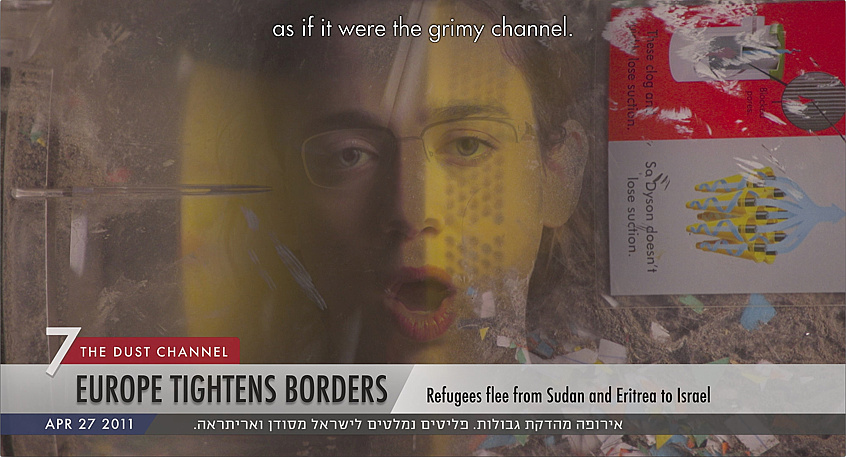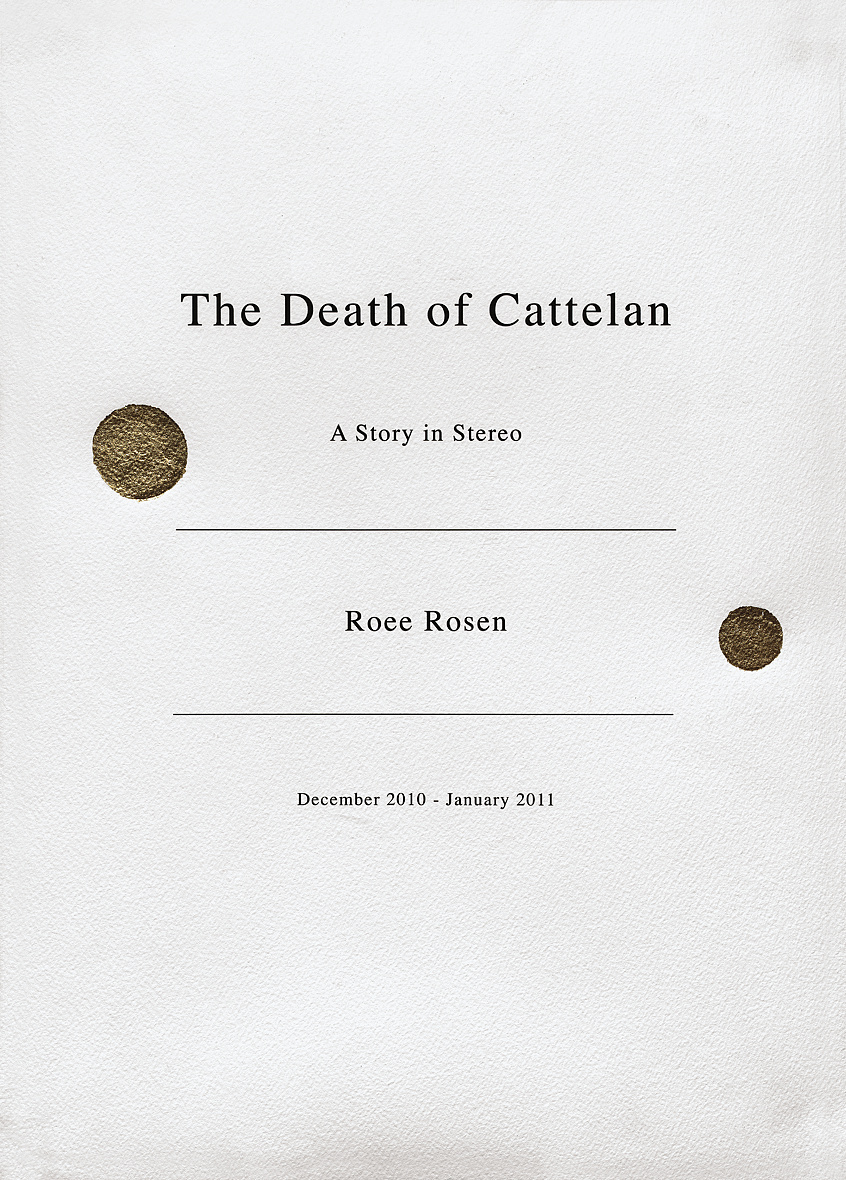Artist Roee Rosen and Marcel Schwierin, director of the Edith-Russ-Haus for Media Art, will present some of the provocative and evocative texts from their publication Live and Die as Eva Braun and Other Intimate Stories, followed by a discussion, in which the audience is encouraged to participate. The book launch will be introduced and moderated by Henriette Gallus, Head of Communications for documenta 14, and followed by book signing with the artist Roee Rosen.
Live and Die as Eva Braun and Other Intimate Stories is a bilingual edition of short writings by Roee Rosen. At the heart of this collection are three provocative texts extracted from important artworks by Rosen, offered here as genre-defying literature at the intersection between reality and fiction, speculative narrative and historical-political critique, humor and eroticism. The three texts are complemented by three of Rosen’s short political-aesthetic essays.
One of these projects, Live and Die as Eva Braun (1995–97), stirred up a political controversy when first shown in Israel, and was later recognized by many as a watershed work concerning the representation of trauma, Nazism, and the Holocaust. It was shown again at documenta 14 in Athens. Rosen’s unique cinematic production, reflected in his film shown in Kassel, The Dust Channel, is exemplified by two full scripts included in the collection: Hilarious and The Confessions of Roee Rosen.
The book was co-edited by Marcel Schwierin and Edit Molnár to accompany Rosen’s first ever survey show in Germany at the Edith-Russ-Haus in Oldenburg in 2016.
Painter, novelist, and filmmaker Roee Rosen (b. 1963, Rehovot, Israel) is an astute critical voice in Israel. While his work deals primarily with the representation of desire and structural violence, Rosen has created an artistic universe that treacherously undermines the normative implications of identities and identifications through fictionalization, irony, and revision. In untold variations, he typically links current Israeli and world politics with mythical and political references to European and Jewish history. Using a vast array of fictional characters and iconographic motifs and codes, Rosen frequently refers to, and transforms, not only the canon of the historical avant-garde and transgressive traditions from the Marquis de Sade to Georges Bataille, but also popular media, political propaganda, and classic children’s fairy tales.
Marcel Schwierin is a curator, filmmaker, and co-founder of the Werkleitz Biennial, the experimental film database cinovid, and the Arab Shorts festival in Cairo. His films include The Images (experimental, 1994) and Eternal Beauty (documentary, 2003). He has regularly curated for the Werkleitz Biennial, the Goethe-Institut, and the International Short Film Festival Oberhausen, among others. From 2010–2015 he was the curator of film and video for transmediale. Since 2015 he is has been the director, together with Edit Molnár, of the Edith-Russ-Haus for Media Art in Oldenburg.




